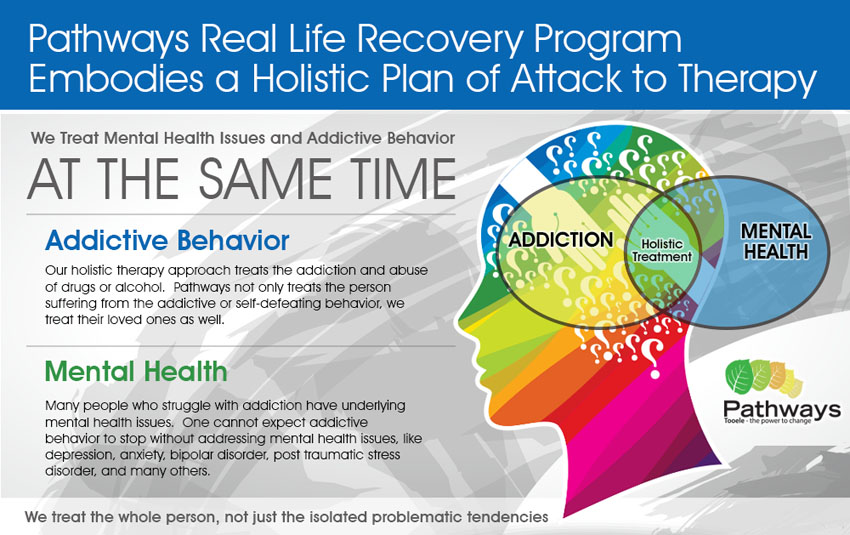Table of ContentsThings about Why Is Alcohol So Addictive? - Michael's HouseAlcoholism: Causes And Treatment Things To Know Before You BuyThe Ultimate Guide To What Is An Alcoholic? How To Treat AlcoholismGet This Report about Alcohol Use Disorder - National Institute On Alcohol Abuse ...Some Ideas on Alcoholism: Causes And Treatment You Should Know
Even a single night out drinking can have serious cardiovascular ramifications-- affecting the heart rate, resulting in disturbances in heart rhythm, raising high blood pressure and increasing the risk of suffering a stroke. The long-lasting results of alcohol on the heart aren't excellent, either. Many chronic alcoholics develop a condition referred to as alcoholic cardiomyopathy-- in layman's terms, a huge floppy heart that does not do its task of pumping blood effectively through the body.
Heavy alcohol usage, even if its just the periodic binge, can result in an episode of pancreatitis, which is a harmful inflammatory process in the pancreas that can result in the spilling of pancreatic enzymes into the stomach cavity and a subsequent phenomenon called 'auto-digestion'. Those experiencing pancreatitis usually experience unbearable pain, and often need emergent healthcare.
Chronic myalgia or muscle pains. Persistent intestinal disturbances leading to frequent nausea, vomiting and gastric pain. Vertigo and syncope-- i.e., dizziness and fainting. Chronic tremblings and irreversible loss of fine motor coordination. After extended time periods with heavy use, character changes might manifest. You might discover: Increased propensity towards aggression.
Unprompted mood swings. Gradually, tolerance to alcohol establishes, whereupon the user will require a growing number of alcohol to achieve desired results. As the drinker attempts to make up for tolerance, the amount of alcohol taken in might progressively increase. The drinker might not even realize the upward trend but, in doing so, considerably increases their danger of alcohol poisoning and death.
Getting The Alcoholism And Alcohol Abuse - Helpguide.org To Work
The following stages might be acknowledged:, or periodic social drinking that may advance to a perceived requirement to drink to relax or handle stressful situations. This, in turn, might lead to an increased frequency and amount of alcohol consumed. Tolerance to alcohol already begins to develop in this early stage.
User may experience some trouble remembering what took place when drinking, and some sensations of regret around drinking. or "loss of control" over drinking. Full signs of alcohol addiction appear, including denial, disruptions in work or domesticity, failed attempts to get assistance, and durations of both avoid drinking and excessive drinking.

Both physical and psychological health may follow a sharp decrease throughout the persistent stage. In addition, users might experience a considerable interruption, if not a total disintegration of social interaction and daily routine-- frequently vanishing from friends and family and struggling to preserve tasks, and so on. Intense alcohol withdrawal can result in the development of major, if not life-threatening health problems.
Nausea and throwing up. Generalized muscular trembling. Tachycardia. Hypertension. Anxiety. Agitation. Seizures. Some with a history of heavy drinking might experience the rapid development of a condition understood as delirium tremens - or the DTs - as they withdraw from the effects of alcohol. This is a threatening turn of events, recognized by unmanageable shaking, high fever, cardiac arrhythmia, extensive confusion and hallucinations.
Unknown Facts About Alcohol Addiction: Signs, Complications, And Recovery
Symptoms normally start as quickly as eight hours after the last drink, and those suffering from severe alcohol reliance ought to prepare in advance to detox under expert medical supervision. Guidance and pharmaceutical intervention (if required) http://rafaelkmgu938.lucialpiazzale.com/what-is-the-treatment-for-alcohol-addiction might last for a couple of days, as the severe signs of intense alcohol withdrawal can possibly appear somewhat later in many cases (24-72 hours post-abstinence).
If a user is dealing with signs of depression, anxiety, psychosis, or other drug reliance, treatment ought to concentrate on the precursors to utilize and consider both the psychological health/wellness and physical problems noted above. In addition to the previously mentioned physical dangers, users who select to detox from alcohol might also face a variety of psychological health developments:, users going through detox can experience hallucinations, misconceptions, anxiety, and stress and anxiety.
All informed, the symptoms from withdrawal can, but normally a user will begin to feel some relief from physical signs in about 72 hours. The length of withdrawal is highly reliant on for how long a user was greatly drinking, and everyone metabolizes alcohol differently. There is no other way to precisely forecast how each individual will withdrawal from alcohol, additional highlighting the need for medical guidance on a case-by-case basis.
There are multiple ways to get help from alcohol reliance, consisting of treatment, medication, and behavioral intervention. Frequently, the user is one of the last to acknowledge or recognize his or her use is a problem, often believing "I have this under control" (how to stop alcohol addiction). As soon as an alcohol use condition has developed, nevertheless, it can be exceptionally to quit without help.
More About Alcohol Addiction And Abuse: Learn About Alcoholism ...
Alcohol Is the Most Frequently Treated Substance Ethanol (alcohol) is abused at a greater rate than any other drug among treatment program attendees, as reported by a 2017 survey from Recovery Brands. Nearly 70% of individuals who took the study went to treatment to get assist with a drinking issue, and an unexpected 52.87% of those who reacted reported looking for treatment for an issue with alcohol more than any other compound.
Thankfully, alcoholic abuse treatment is just a call away. Talk to our healing support professionals at Who Responses? to begin working towards your healing. Medications that might assist with the treatment of alcohol abuse and associated symptoms consist of: This drug blocks the body's capability to metabolize alcohol and triggers an intensely undesirable reaction when both are taken in show.
: Minimizes the reward that comes from drinking by reversing the activation of opiate receptors by endorphins. Helps to bring back the balance of glutamate-GABA signaling in the brain. This medication helps to reduce withdrawal signs such as sleeping disorders, stress and anxiety, and restlessness. Any medication usage requires the guidance of a medical professional and a prescription, and it must be noted that the most success is found when medications are utilized in combination with treatment.

Some courses of property treatment may actually begin in a hospital setting. Users attend a program however are enabled to live exterior of the treatment facility, often participating in everyday to begin and after that following a tiered schedule (five days a week, three days a week, one day a week). Users attend conferences as typically as needed, through groups such as Alcoholics Anonymous (aa.org) Other non-12 action support system or healing programs are readily available as well, consisting of SMART Healing.
Examine This Report about Alcoholism: Causes And Treatment
A lot of recuperating alcoholics discover attending assistance groups a long-lasting dedication in assistance of their sobriety. Al-Anon (alanon.org), a support system for families of addicts, offerings meetings in which liked ones can find help in their journey liking an addict. Regression will be a temptation for many alcohol and drug abusers.
The ability to stay sober in spite of regression temptations is carefully associated to coping abilities discovered throughout treatment. Ongoing therapy offers the very best recovery course for former alcohol abusers, particularly when integrated with support system, as discovering the assistance from others who comprehend the difficulties and rewards related to healing is essential to continued abstinence for lots of.
Retrieved from http://www.health.harvard.edu/addiction/alcohol-abuse Mixing alcohol with medications. Obtained from http://pubs.niaaa.nih.gov/publications/Medicine/medicine.htm Alcohol withdrawal. (Modified 8 February, 2015). Obtained from https://www.nlm.nih.gov/medlineplus/ency/article/000764.htm Myrick, H. M.D., and Anton, R. F., M.D. (1998 ). Treatment of Alcohol Withdrawal. Alcohol Health & Research Study World, Vol. 22, (Issue 1). Obtained from http://pubs.niaaa.nih.gov/publications/arh22-1/38-43.pdf National Institute on Alcoholic Abuse and Alcohol Addiction.